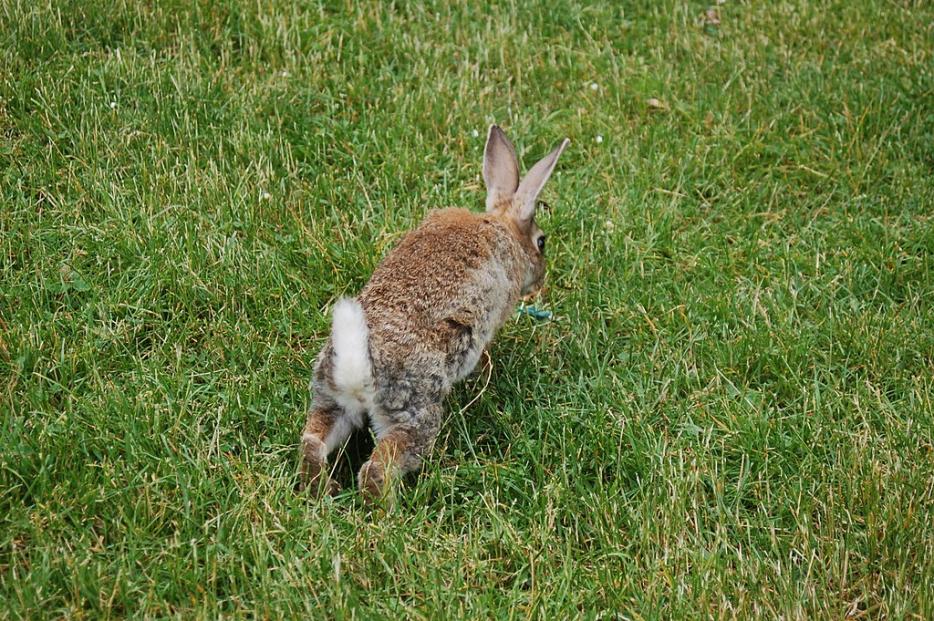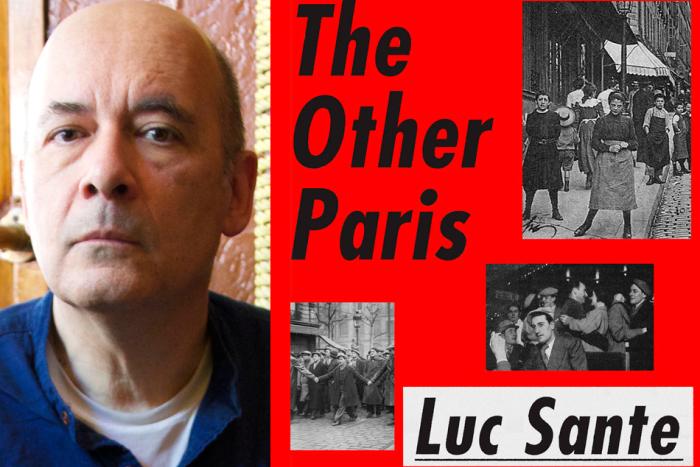What was important to us in 2015? Hazlitt’s writers reflect on the quiet reverberations of the year’s big issues, and the loud ring of its smaller ones.
Just before waking on January 1, 2015, I dream about a roller derby match. In the dream, I am competing under the name “Andrea Twerkin'.” It's rare for dream jokes to still be funny when you wake up, and I'm always extremely proud of myself when my brain pulls it off, so when I surface to consciousness I tell my boyfriend the pun before I even open my eyes.
A few seconds later, I realize what I've done. I've ruined the entire year and it's too late to fix it.
*
I am in most ways a rational person. I no longer identify as an “atheist” because so many people who adopt the term are also unapologetic racists and misogynists, but I don't believe in God, gods, magic, ghosts, homeopathy, fairies, intelligent design, or the race of lizard people that runs the world.
I am also, however, an anxious person. And I can't speak for all anxious types, but for me, superstitious behaviors—picking up pennies to avoid bad luck, knocking on wood for protection—resonate beautifully with the rhythm of my fears. It's not because I believe in evil spirits that I feel compelled to mumble “kinehora” (the slurred, perfunctory version of the Yiddish term keyn ayn-hora, “no evil eye”) whenever I say something braggy enough to bring down revenge on my head. It's because naming good fortune opens up a tiny rift in my hard-earned calm, a pinpoint vortex of awareness that terrible things could happen at literally any time. Superstitious compulsions are just the right size to plug that hole. They give me a ready-made, culturally invisible way to tamp down anxiety, to convince myself that I'm safe for the next little while.
So it's important, for instance, that I pat the car dashboard when I see an accident on the road—not because I actually believe the car understands my gesture of consolation, but because it offers a tiny buffer against the constant presence of random misfortune. If you think too hard about cars, you'll realize you shouldn't ever be in one; they are two-ton hunks of hurtling steel, and you are a soft bit of gristle. A slip of the foot, an unlucky sneeze, and that wreck by the side of the road could be you. But not this time, you say, patting the dashboard. Not today.
The point is, I should not have said “I dreamed I was a roller derby player named Andrea Twerkin'” upon waking on the first day of the year. There's nothing lucky about saying “I dreamed I was a roller derby player named Andrea Twerkin'.” The first words out of my mouth should have been “rabbit rabbit.” But they weren't, and I've spent the rest of the year trying to shore up my luck.
*
Of course, some people say “rabbit rabbit rabbit” first thing on New Year's Day to give themselves luck for the year, while others say “rabbit, rabbit, white rabbit,” and some just say “white rabbits,” and some people know the first words you say on some arbitrary date don't make a goddamn bit of difference. And then a lot of people say it on the first of every month instead. I do that too, but the first words on the first day of January are the most important: the charm that opens a sheltering force field over your year. Since I failed to lay down the appropriate lagomorphic spell of protection for 2015, the monthly boosts are all I have, which makes it a double failure when I forget. (November was particularly embarrassing. I woke up to an email about the newest Mac operating system release, and it had a dumb name, and I thought that was funny, and long story short the first words out of my mouth were not “rabbit rabbit” but “OS X El Capitan.”)
Part of me is ashamed of wanting so much extra luck. Is it not enough to be born so far ahead—do I need doors to magically open for me, too? It's not just lazy but greedy: I want effortless gifts from an unknown power. It's the cookies by the fireplace, the tooth under the pillow—an offering to something I don't understand, in exchange for a boon I don't need.
The say-rabbit-for-luck superstition dates back to at least the turn of the 20th century. The British periodical Notes & Queries, a sort of racist antique MetaFilter, first mentions children saying “rabbits” on the first of the month in 1909. (One Notes & Queries correspondent registers a variant in which the word should be spoken up a chimney. I've never tried that, and I live in a tiny Brooklyn apartment, so if it's a requirement I'm screwed.) Unlike many of my superstitions, which are either homebrewed or cadged from my Jewish heritage, this one was distinctly British in origin—although it had traversed the Atlantic by the Thirties, according to a 1935 newspaper article that claimed Franklin Roosevelt said “rabbits” every month. In the mid-1990s, when I was a teen, the kids' cable channel Nickelodeon would remind viewers on the last night of each month to say “rabbit rabbit” the next morning. I didn't have cable, so that couldn't be the source of my superstition, but Nickelodeon was definitive for a lot of U.S. youngsters; I probably got it from someone who got it from there.
Months when I say “rabbit rabbit” tend to bring good writing assignments, or fortunate die rolls in Dungeons & Dragons, or—on one especially serendipitous occasion—free tickets to Hamilton. Months when I forget bring lost checks, water spilled on laptops, clouds of Twitter trolls like stinging gnats. There's no causality here, of course; it's confirmation bias, the human instinct to pay more attention to things that align with our expectations. But what if I stopped the rituals just because I knew they were meaningless, and it all came crashing down? No, no; the effort is too small, the risk is too great.
*
In the British sci-fi TV show Red Dwarf, luck is a form of virus. We're mostly familiar with negative viruses, which make you feel tired or achey or nauseated, but in Red Dwarf there are positive varieties—charisma, sexual magnetism, inspiration. If you have a sudden run of great poker hands, if you hit every green light for miles, if you happen to be reaching for that obscure brilliant novel in the bookstore just as an unattached cutie is reaching too, there's a perfectly simple explanation: you've come down with the lucky flu.
That's an intriguing thought, but it's not how I tend to treat luck. I think of it not as a virus, but as an inoculation. In extreme cases—and I've had a few in the last couple of years—it may bring you something wonderful, but for the most part, my little rituals for increasing good luck are more about avoiding the bad. The natural state of a human, in my cosmology, is grinding despair; every step that we're removed from death and calamity is a stroke of tremendous good fortune. The charms and incantations that increase luck—all the knocked-on wood, all the abandoned pennies that accumulate in my pockets and then in my change jar—aren't really meant to put me ahead. They just delay the worst.
Not that much of this impending doom has ever actually touched me. I've been extraordinarily lucky, perhaps due to a fine protective mesh of amulets and incantations, but more likely because of white privilege, educational opportunities, and a comfortable middle-class upbringing. Luck hasn't given me a charmed life, exactly, but it's buffered me from the worst effects of my misfortunes and mistakes; when I needed surgery I had insurance, for instance, and when I had to move out of an abusive situation in my early twenties I was able to go stay with my parents. For so many people without that protection, a bad break can spiral into catastrophe. Maybe it's that awareness that's kept me on edge—waiting for the floor to fall out, and looking for something to keep me aloft when it does.
*
The day before Halloween this year, two days before I accidentally said “OS X El Capitan” instead of “rabbit rabbit,” I went with my friend Jaya to the witch supply store in the East Village. The witch store is chockablock with spellbooks, talismans, and specially carved candles, some of them in the shape of cats or skulls or genitals; it's an all-you-can-eat buffet for an anxious mind that calms itself with superstition and ritual. Luck, in its purest placebo form, is available as an herb, an incense, a candle, a verse, a jewel.
I toyed with a rune-engraved stone that promised it would bring its owner money. I always need money, I figured—but because I always need money, I couldn't reconcile spending five dollars on a rock, so I put it back down. An hour later I got an email saying that a piece I'd written for an online publication was being picked up by its print edition, which would mean another couple hundred dollars for the same amount of already-finished work. “Oh,” I told Jaya, only mostly joking, “it's because I touched a rune.”
There's a laziness to believing in luck. In fact, the idea of the luck virus in Red Dwarf was born out of the need for a deus ex machina. In the relevant episode, most of the crew is trapped in an airless room by a lunatic hologram, and the writers needed a way to solve their predicament without spending any extra money on special effects. Vials of luck virus allow the characters to bypass the narrative problems of opening a locked door (they guess the door code) and curing their hologram shipmate of his insanity (the complex equipment they need happens to be lying around). Luck is a shortcut; in this case, it literally gets you out of jail free.
I could have written another piece for a few hundred dollars, but it's easier to touch a rune. I could dedicate myself anew each year to self-improvement and success; I could make resolutions, and keep them. It's easier to say “rabbit rabbit,” though, so that's what I do.
So there's part of me that's ashamed of wanting so much extra luck—a stockpile of luck, a savings account. Is it not enough to be born so far ahead—do I need doors to magically open for me, too? It's not just lazy but greedy: I want effortless gifts from an unknown power. It's the cookies by the fireplace, the tooth under the pillow—an offering to something I don't understand, in exchange for a boon I don't need.
But there's also the part that's solipsistic, yet not selfish: the part that believes I deserve nothing, even what I already have, and that without eternal vigilance on my part it will all be snatched away. When I pass a wreck on the road, I am already imagining my driving companion or dog or self dead and mangled beyond repair. If I don't pat the car, it could happen, and it would be my fault.
Protecting my month or my year with rabbits won't keep death and disaster away. But it lets me dismiss the images, for a moment. It lets me think something can be done.
*
It would be convenient if I could invent a lucky sign, something that's likely to happen to me anyway on a given New Year's Day. “If a dog steps on your foot you'll have a good year,” for instance, or “no harm befalls those who carry 20-sided dice in their purse.” But part of the appeal of a superstition is the sense of invisible authority, the mysterious ancient “they” telling you that this will definitely work. All you have to do is go through the motions.
This makes me think I need more folklore, more runes, more banishing spells: backups for the rabbits I forget, for the pennies I leave behind because I mistake them for sidewalk gum. The deeper I bury myself in superstitious compulsions, the more I can feel in control. I don't know how to succeed, but the rules for how to avoid bad karma or the evil eye are fairly clear.
Probably, though, I just need to move on—to accept the luck I've been given, to forge ahead despite knowing that good fortune is frangible. At the close of a year with no charm on it, a year that's nevertheless been pretty good to me and very cruel to countless, blameless others, I think maybe I can muster the emotional maturity to leave some of my security blankets behind.
Kinehora.






